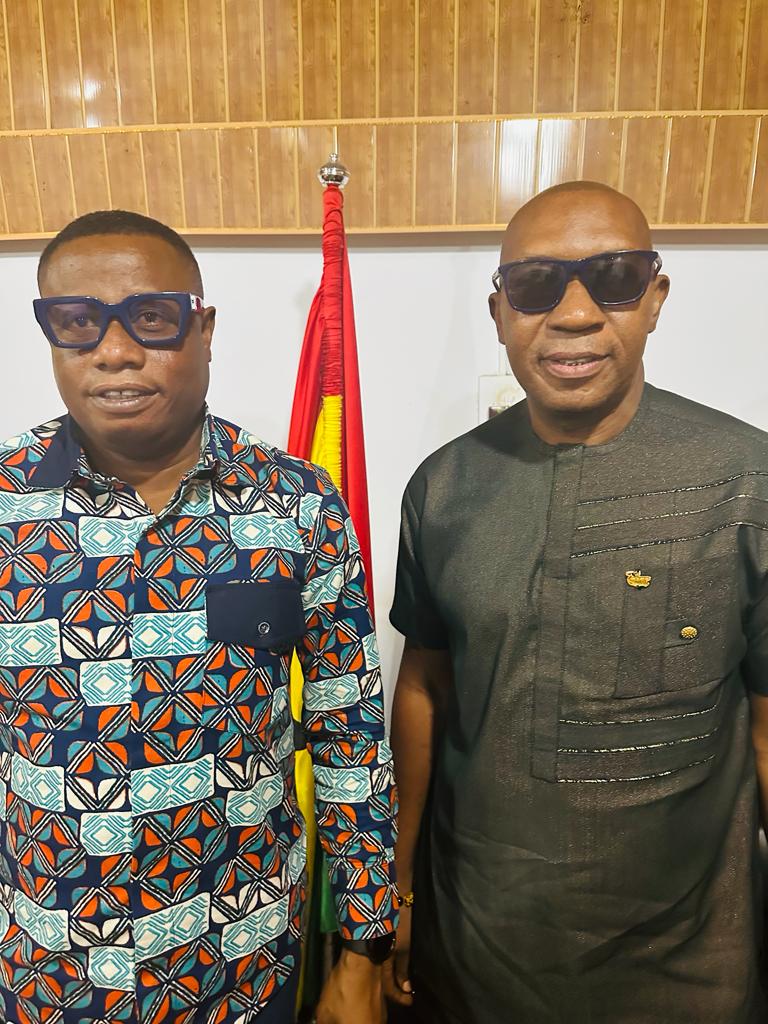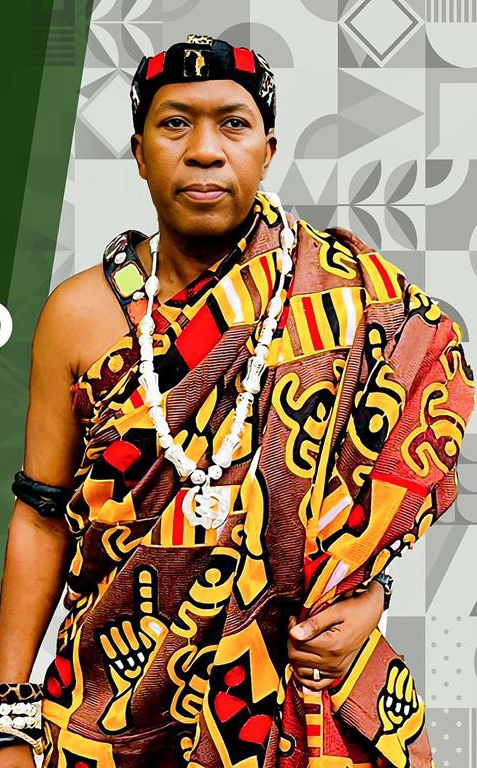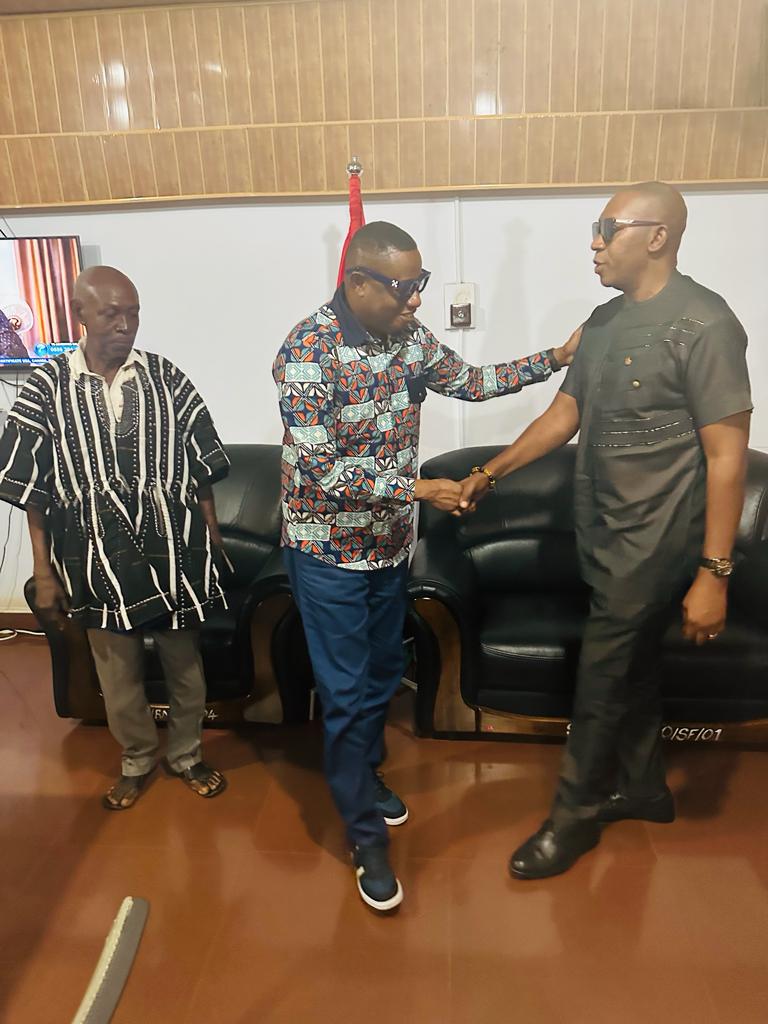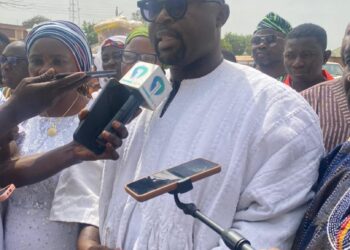Professor Nnaa Lanjagor Karley II made the call in the Savannah Region after he submitted his letter of invitation to the President of the republic of Ghana, Nana Addo Dankwa Akuffo through the Savannah Regional minister on Wednesday 16th, August 2023.
In his media briefing after the presentation, he disclosed that his coronation is set to come off on 21st October, 2023 in Jama in the Mo/Deg traditional area.

In Ghanaian society, the chief is the head of the communities in his traditional area of jurisdiction.
A chief is selected for unique qualities that make him an excellent representative of the community. The chief is the microcosm of what is good about the community and he serves as a link between his community and others.
Professor Nnaa Lanjagor Karley II made a passionate call for unity in his traditional area, noting that it is peace that promotes development.

“We have to be a strong unite, because our focus is to make sure that we develop our area, as development can’t be done by one person, it has to be united people” he said
“We work together and strengthen our relationships and when we are looking for opportunities and investors to come to our area they will be motivated as we are strong unite, they will participate and help us develop our place” he added
In his letter to the president it was stated that “As the newly gazetted paramount chief of the Jama Traditional Area, and a prominent university professor in land economy at the Anglia Ruskin University in Cambridge, United Kingdom, I have crafted developmental plans and programmes, including education and agriculture sectors that are in line with your government’s agenda and programmes for my people. I am confident that your presence at my outdooring ceremony will inspire a lasting and sustainable bond with your government to transform my area, which will in turn be a catalyst for the development of the Deg (Mo) people and Savannah Region as a whole”.

The Mo (Deg) are a minority language group located in two administrative districts, Kintampo District at the north-western border of Brong Ahafo, and Bole District at the south-western border in the Savannah Region.
Professor Nnaa Lanjagor Karley II also indicated that the people of Mo are spread across the country, especially around river Volta, “some of us are in the northern part, some are also in the southern part, so we call ourselves “Dega” and the Asante call us Mo people”
“So we in the northern part consist of Jama traditional area where I am the paramount chief, and the Tatalema, Carpenter, Bamboi etc, we share boundaries with the Gonjas and they are our playmates” he indicated.
Nnaa also revealed that the coronation is set to bring all sort of stakeholders, government officials, Mo’s across the country, NGO’s, University of Cambridge, people from south Africa, the media and people from his traditional area.
History of Mo/Deg
In Ghana, the Mo/Dega live in Nkoranza in the Nkoranza Municipal Assembly of the Bono East Region and the Bole in the Bole District of the Northern Region of Ghana. The two regions in which the Mo/Dega occupy are divided by the Black Volta River which also separates the two major towns that have paramount chiefs, New Longoro (Maantukwa) and Bamboi (Gbanboi).
The original name of the Mo ethnic group is Dega/Degha, which means “multiplying,” “spreading quickly,” or “fertility’. A person from ethnic Dega extraction is known as a Deg, their language is known as Deg and they call their land Dega Hare (Dega Land). The Akan ethnic groups in the area, however, gave the name Mo to the Dega migrants. The Mo/Dega are well-known for their expertise in making large pots and catching fish in the Black Volta. In addition, they also earned the reputation of being fierce warriors in the past.
The Mo/Dega in the north speak the Mangom dialect in places such as Bamboi, Jama, Jugboi, Nepui (Kapinta), Tasilima, and a few other places, while those in the south speak the Longoro dialect in places like: Busuama, NewLongoro, Kintampo, Old Longoro, Manchala, Fignyoa (Ahenakom), Kandige, Yaara, Tarbang, Soronuasi, Babatokuma, and other places. Within the Longoro dialect is another brand of the Mangom dialect different from the northern Mangom, and it is spoken in Mansie (Nyambwe).
Source: Padfm.com.gh/Gogu Edwin

















